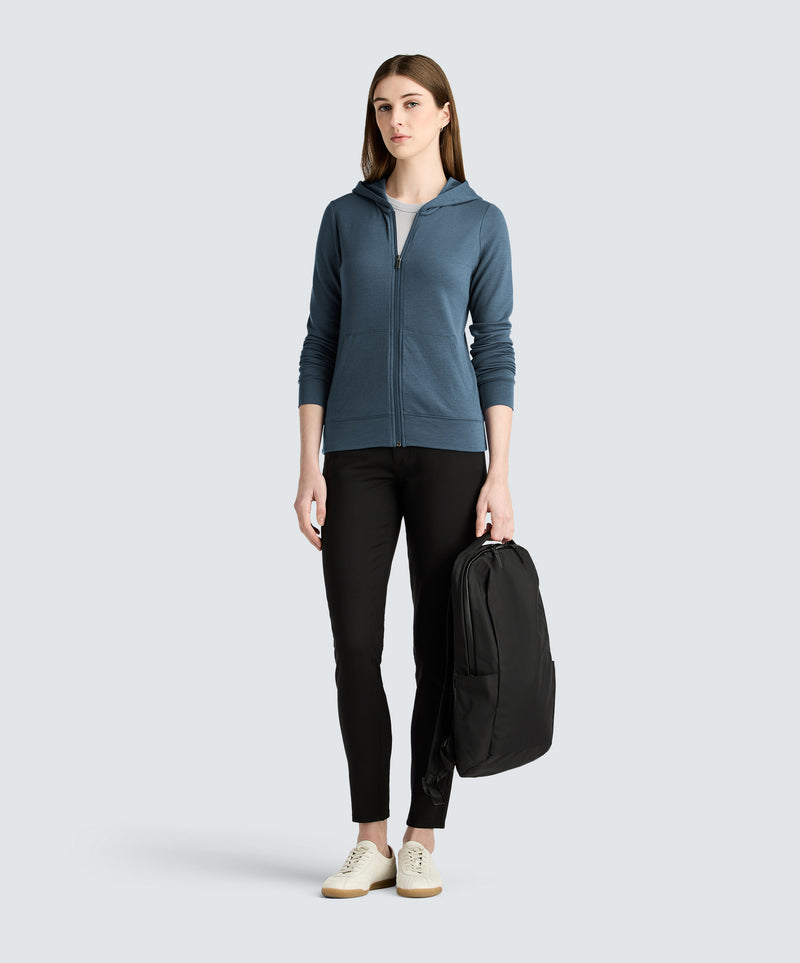Digital Nomadism
The Ultimate Guide to Working Remote
Updated: May 07, 2022
How to Work Remotely
Which Jobs Fit The Lifestyle?
Flexibility is key when finding a nomadic job, and so the lifestyle tends to attract people who work in design, tech, or an adjacent field. Enter a coffee shop in Chiang Mai and you will probably meet a couple web or app developers, maybe an SEO analyst, a software tester or a freelance writer. Really, any job that allows you to work from home should allow you to work remotely.Where Can You Find Remote Work?
Given the online nature of digital nomadism, it should come as no surprise that the conventional way of landing remote work is – you guessed it – online. There are a number of job and recruitment websites that cater primarily to remote workers, but the best ones are Remote.com (which deals exclusively with remote work), Flexjobs, RemoteOK and AngelList (which deals mainly with startup work, an often overlapping job market to digital nomadism). If you have other suggestions for finding remote work, leave them in the comment section.On the “pro” side, you get to see far-flung parts of the world, unmoored by a fixed address, and can move freely between countries and cultures that interest you. You don’t have to dress up to go to the office, nor are you required (often) to work at set times. If you are someone who feels their best when free of constraints, this is the lifestyle for you.
On the “con” side, it can feel structure-less at times, and unless you make a concerted effort to meet others, it can feel lonely. Often times, you’ll also need to be scrappy and drum up your own work. If you’re someone that likes structure, and isn’t going to put yourself out there to land gigs, working remote may not be ideal.

Where To Go
What Makes A Good Destination For Working Remotely?
Where working remotely is concerned, not all destinations are created equal. When choosing a country or city, some popular criteria for digital nomads are as follows: affordability, weather, an existing digital nomad community, an interesting culture, and ease of housing. For example, an expensive, cold country with little to do on the weekend, and a convoluted visa process might not be your best choice.

Chiang Mai


Bangkok


Ho Chi Minh City


Johor Bahru


Budapest


Valencia


Berlin


Zagreb


Santiago


Medellin
Making a Preparatory Checklist

What To Pack
The idea here is to pack light. You want to be able to move around unencumbered by a large suitcase, but that can be tricky when you are essentially living and working out of your bag. For a comprehensive packing guide for long-term travel, check out this article, which lists the exact numbers of each garment we recommend. As a basic guide, here are the things you will need:
The Right Backpack – Opinions differ on what exactly makes a great backpack, but look for one with a good amount of volume for its size (i.e. the interior isn’t given over to unnecessary pockets and filling). If valuables are a concern, consider getting a slash-free bag – you can find backpacks with stainless steel wire mesh embedded in the fabric. In our experience, the best choice for an office on the move is the AER Travel Pack.
Merino Wool, Obviously – You can’t travel without the breathable, insulating, anti-microbial power of merino socks , boxers, shirts and sweaters. As travelers ourselves, we can say with confidence that these are must-haves for any remote worker.
Multi-Purpose Footwear – Depending on your destination, this could be comfortable running shoes, hiking boots or flip-flops (or two of the three).
Shorts, Swim Trunks, Jeans – For bottoms, get a pair of comfortable, versatile jeans, and supplement them with a pair of shorts for hot days. Your swim trunks you can probably buy abroad.
Hardware – Pack your work computer, phone, chargers, and external hard drives for backing up work in case of a Wi-Fi outage. BestVPN also put together a list of indispensible tech items chosen by digital nomads, which is worth checking out.
Paperwork – this includes copies of your passport, ID, visas, itinerary and travel insurance, as well as extra passport photos in case you need them for your visa process.
Toiletries – Pack the usual suspects (toothbrush, soap, shampoo, razor, hair product, etc.) but know that you can easily, cheaply buy most of these at your destination, so unless you are very brand loyal, don’t pack a giant bottle of shampoo or extra packs of razors.
Travel Towel – A normal towel will probably suffice, or you could buy your towel at your destination, but a travel towel is great for its small packing size and quick-drying potential.

What Blogs To Follow
Other than this one, here are a few blogs to follow if you still have questions about working remotely (or if you just want to read about other people’s experiences):
Become Nomad – Advertising itself as a resource for those thinking of making the switch to digital nomadism, this blog does offer some good insights into the transition.
Untemplater – Often veering into general career advice (with some personal finance tips thrown in), this blog is nevertheless a good source for digital nomads as it is all about unconventional forms of work and living.
Nomadic Matt – A bestselling author, Matt is credited with popularizing digital nomadism, and his site mixes diary-style blogging with tips about working and living abroad.
Stop Having A Boring Life – As the name suggests, this blog is a call to action. It’s mostly a travelogue, but there are some good tips peppered in, and some awesome photos.
But most importantly, head to:
Reddit’s r/digitalnomad – While not technically a blog, Reddit’s digital nomad community is a indispensable resource for remote workers, and one of the few forums you can visit to have your questions answered and concerns heard instantly.
Other Resources
The book Remote: Office Not Required, by Jason Fried and David Heinemeier Hansson, is required reading for those looking to make the leap into the digital nomad lifestyle. The founders of Basecamp (then 37Signals) Fried and Hansson are great advocators for remote working, and bolster their endorsement with talk about productivity and life balance.
The podcast As Told By Nomads is a great resource for those who like to get their insights and info audibly. It is a series of conversations with digital nomads from around the globe, and tackles a lot of pertinent topics.
For those who’d rather digest their media in film form, the T+E series New Nomads, while difficult to find online, is an accurate look into the subculture of digital nomadism.
In Summary
It starts with finding a job, and determining whether this kind of living is really for you. Then the planning starts: spinning the globe and choosing your perfect place, gathering paperwork, documentation, tickets and accommodation. Once everything is “real”, you turn your attention to packing, figuring out how to make the most out of a small backpack. When you arrive at your destination, you consult with any number of resources – blogs, books, podcasts, etc. – to help you make the most out of this amazing experience.
Working remotely is one of the truly awesome things about the age in which we live. You can see the world and earn a living, perhaps even make a fortune. With some careful planning, big dreaming, and a bag full of merino wool, you’re ready for the adventure of a lifetime.









































































































































































































































































































